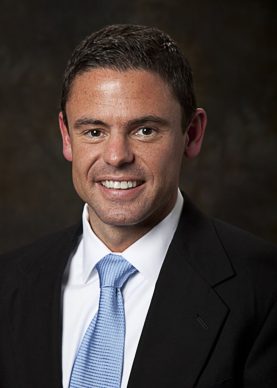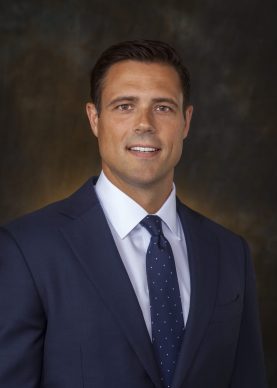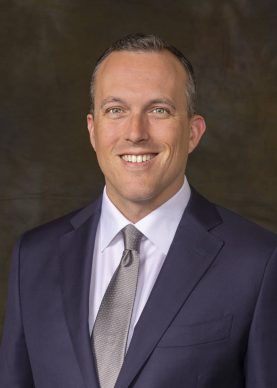Diagnosis and Treatment of Tendinopathy in the Shoulder in Wake County
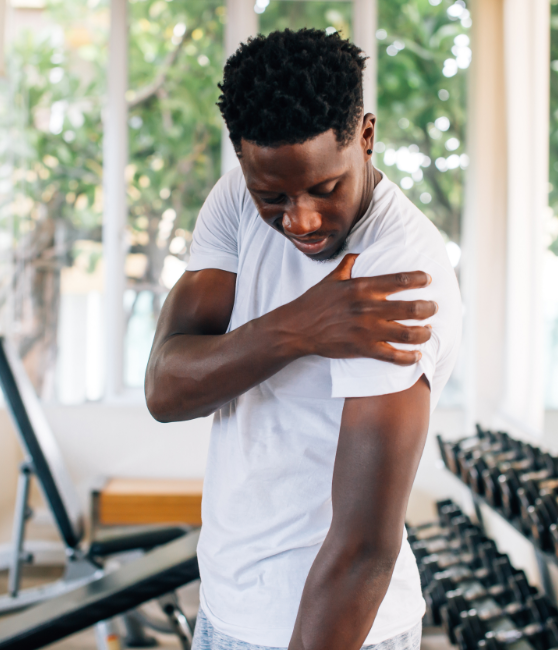
What is Tendinopathy in the Shoulder?
Shoulder tendinopathy refers to any tendon injury in your shoulder, whether it is chronic or acute. This type of injury is usually caused by overuse. There are two types of tendon problems that can happen in your shoulder: tendonitis and tendinosis.
Types of Tendinopathy in the Shoulder
- Tendonitis: Tendonitis occurs when overuse causes tendon wear and inflammation. This is an acute injury, meaning the pain is immediate, but it’s easily treated and the damage is not permanent.
- Tendinosis: Tendinosis happens when your tendon begins to degenerate and small tears appear in the tissue. This injury is more serious and brought on by chronic overuse or a sudden force that overloads the tendon. In most cases, the shoulder condition begins as tendonitis and turns into tendinosis when left untreated.
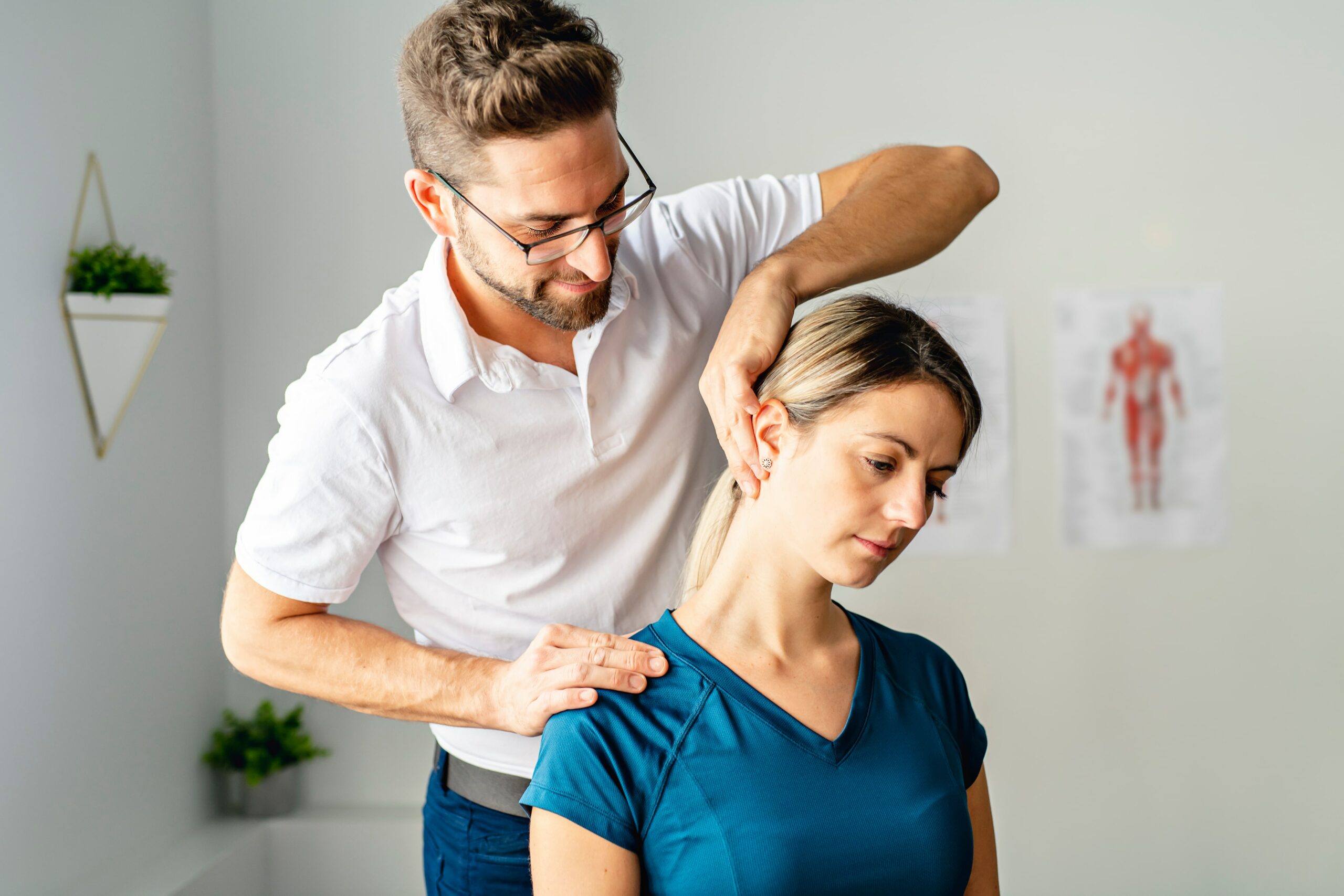
What Causes Shoulder Tendinopathy?
Tendinopathy is commonly caused by overuse. Repeated movements, like reaching over your head or throwing a ball, are examples of overuse. Your rotator cuff is the most common area for a tendon injury in your shoulder because it gives your arm the ability to move in a circular motion. Repeated arm rotation often causes rotator cuff tendinopathy in baseball, softball, and volleyball players.
Other less likely causes of shoulder tendinopathy are the presence of arthritis or other diseases causing shoulder inflammation. A sudden fall or force to the shoulder could also cause strain on the tendons.
Symptoms of Shoulder Tendinopathy
There are several symptoms that indicate that some type of tendinopathy is affecting the shoulder. Signs to watch out for include:
- Pain in the front of your shoulder
- Shoulder pain when reaching behind your back
- Shoulder pain when lifting your arm
- Shoulder pain at night when sleeping on your injured side
- Shoulder weakness
- Shoulder stiffness
- Inflammation (tendonitis)
- Loss of range of motion
- “Clicking” sound when you raise your arm
How is Shoulder Tendinopathy Diagnosed?
When diagnosing shoulder tendinopathy, your healthcare provider will start by asking questions about your symptoms to get a better understanding of the discomfort you are experiencing. They will then perform a physical exam, during which they will check for tender areas of the shoulder, range of motion, muscle strength, and joint stability. Diagnostic tests will likely be required before confirming that shoulder tendinopathy is present. Images of the shoulder can be taken using an MRI scan, arthroscopy, X-rays, and a CT arthroscopy.

Treatment for Tendinopathy in the Shoulder in Wake County
Shoulder tendinopathy will not heal on its own if you continue the activity causing it. Treating tendinopathy will include resting the affected tendon until your pain subsides.
Raleigh Orthopaedic shoulder specialists will begin by prescribing non-surgical treatment, which will reduce pain and improve function. Non-surgical treatment techniques include:
- Rest: The first step toward recovery is to avoid activities that cause pain.
- Ice: Apply cold packs for 20 minutes at a time, several times a day, to keep swelling down. Do not apply ice directly to the skin.
- Heat: Use heat to decrease stiffness.
- Nonsteroidal anti-inflammatory medicines: Over-the-counter pain relievers like ibuprofen and naproxen reduce pain and swelling.
- Steroid injections: Steroids such as cortisone are very effective anti-inflammatories. Injecting steroids into the tendon can relieve pain.
- Physical therapy: Specific stretching and strengthening exercises can help restore your range of motion and strengthen your shoulder.
If your condition does not improve with non-surgical treatment, Raleigh Orthopaedic shoulder specialists may suggest surgery for tendinosis. Surgery for tendinosis is usually performed arthroscopically. During arthroscopy, your Raleigh Orthopaedic surgeon inserts a small camera, called an arthroscope, into your shoulder joint. The camera displays pictures on a television and allows your surgeon to fully visualize the area they are operating on.

What is the Recovery Time for Arthroscopic Surgery?
After your arthroscopic shoulder surgery, it will likely take one to six months for your shoulder to fully heal. Most doctors recommend wearing a sling during the first week after surgery to immobilize the shoulder and support the weight of the arm. Medication may be prescribed to manage pain as well. The timetable to return to work or sports varies depending on the surgery and ranges anywhere from one week to several months. In most cases, physical therapy is recommended after surgery to help you regain range of motion and muscle strength in the shoulder.
Is There a Way to Prevent Shoulder Tendinopathy?
Because shoulder tendinopathy is caused by overuse, it is important to avoid or be cautious of activities that can lead to it. Starting activity off slowly before building up to a normal level can help work the shoulder muscles and prepare your body for more intense exercise. Using limited force and repetition can also reduce your risk of shoulder tendinopathy. It is also important to stop any activity if you start to feel pain. If you tend to work or play sports with poor posture, you should focus on correcting your posture so you do not develop shoulder tendinopathy.

Get Expert Shoulder Care at Raleigh Orthopaedic
Your well-being is important to us. Raleigh Orthopaedic is Wake County’s oldest and most experienced orthopedic practice, having served the Triangle and surrounding regions of central North Carolina since 1919. If your injury or condition is recent, you can walk right into one of our Raleigh Orthopaedic Urgent Care locations for immediate care. For rehabilitation and physical therapy, no referral is needed to see one of our physical therapists. Give us a call or book online today to meet with one of our orthopedic specialists in Wake County!
